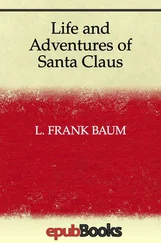Charles Dickens - Life And Adventures Of Martin Chuzzlewit
Здесь есть возможность читать онлайн «Charles Dickens - Life And Adventures Of Martin Chuzzlewit» весь текст электронной книги совершенно бесплатно (целиком полную версию без сокращений). В некоторых случаях можно слушать аудио, скачать через торрент в формате fb2 и присутствует краткое содержание. Жанр: Классическая проза, на английском языке. Описание произведения, (предисловие) а так же отзывы посетителей доступны на портале библиотеки ЛибКат.
- Название:Life And Adventures Of Martin Chuzzlewit
- Автор:
- Жанр:
- Год:неизвестен
- ISBN:нет данных
- Рейтинг книги:5 / 5. Голосов: 1
-
Избранное:Добавить в избранное
- Отзывы:
-
Ваша оценка:
- 100
- 1
- 2
- 3
- 4
- 5
Life And Adventures Of Martin Chuzzlewit: краткое содержание, описание и аннотация
Предлагаем к чтению аннотацию, описание, краткое содержание или предисловие (зависит от того, что написал сам автор книги «Life And Adventures Of Martin Chuzzlewit»). Если вы не нашли необходимую информацию о книге — напишите в комментариях, мы постараемся отыскать её.
Life And Adventures Of Martin Chuzzlewit — читать онлайн бесплатно полную книгу (весь текст) целиком
Ниже представлен текст книги, разбитый по страницам. Система сохранения места последней прочитанной страницы, позволяет с удобством читать онлайн бесплатно книгу «Life And Adventures Of Martin Chuzzlewit», без необходимости каждый раз заново искать на чём Вы остановились. Поставьте закладку, и сможете в любой момент перейти на страницу, на которой закончили чтение.
Интервал:
Закладка:
Poll had a very small, shrill treble voice, which might have led the wags of Kingsgate Street to insist the more upon his feminine designation. He had a tender heart, too; for, when he had a good commission to provide three or four score sparrows for a shootingmatch, he would observe, in a compassionate tone, how singular it was that sparrows should have been made expressly for such purposes. The question, whether men were made to shoot them, never entered into Poll's philosophy.
Poll wore, in his sporting character, a velveteen coat, a great deal of blue stocking, ankle boots, a neckerchief of some bright colour, and a very tall hat. Pursuing his more quiet occupation of barber, he generally subsided into an apron not over-clean, a flannel jacket, and corduroy knee-shorts. It was in this latter costume, but with his apron girded round his waist, as a token of his having shut up shop for the night, that he closed the door one evening, some weeks after the occurrences detailed in the last chapter, and stood upon the steps in Kingsgate Street, listening until the little cracked bell within should leave off ringing. For until it did— this was Mr Sweedlepipe's reflection—the place never seemed quiet enough to be left to itself.
“It's the greediest little bell to ring,” said Poll, “that ever was. But it's quiet at last.”
He rolled his apron up a little tighter as he said these words, and hastened down the street. Just as he was turning into Holborn, he ran against a young gentleman in a livery. This youth was bold, though small, and with several lively expressions of displeasure, turned upon him instantly.
“Now, STOO-PID!” cried the young gentleman. “Can't you look where you're a-going to—eh? Can't you mind where you're a-coming to—eh? What do you think your eyes was made for—eh? Ah! Yes. Oh! Now then!”
The young gentleman pronounced the two last words in a very loud tone and with frightful emphasis, as though they contained within themselves the essence of the direst aggravation. But he had scarcely done so, when his anger yielded to surprise, and he cried, in a milder tone:
“What! Polly!”
“Why, it an't you, sure!” cried Poll. “It can't be you!”
“No. It an't me,” returned the youth. “It's my son, my oldest one. He's a credit to his father, an't he, Polly?” With this delicate little piece of banter, he halted on the pavement, and went round and round in circles, for the better exhibition of his figure; rather to the inconvenience of the passengers generally, who were not in an equal state of spirits with himself.
“I wouldn't have believed it,” said Poll. “What! You've left your old place, then? Have you?”
“Have I!” returned his young friend, who had by this time stuck his hands into the pockets of his white cord breeches, and was swaggering along at the barber's side. “D'ye know a pair of topboots when you see “em, Polly?—look here!”
“Beau-ti-ful” cried Mr Sweedlepipe.
“D'ye know a slap-up sort of button, when you see it?” said the youth. “Don't look at mine, if you ain't a judge, because these lions” heads was made for men of taste; not snobs.”
“Beau-ti-ful!” cried the barber again. “A grass-green frock-coat, too, bound with gold; and a cockade in your hat!”
“I should hope so,” replied the youth. “Blow the cockade, though; for, except that it don't turn round, it's like the wentilator that used to be in the kitchen winder at Todgers's. You ain't seen the old lady's name in the Gazette, have you?”
“No,” returned the barber. “Is she a bankrupt?”
“If she ain't, she will be,” retorted Bailey. “That bis'ness never can be carried on without ME. Well! How are you?”
“Oh! I'm pretty well,” said Poll. “Are you living at this end of the town, or were you coming to see me? Was that the bis'ness that brought you to Holborn?”
“I haven't got no bis'ness in Holborn,” returned Bailey, with some displeasure. “All my bis'ness lays at the West End. I've got the right sort of governor now. You can't see his face for his whiskers, and can't see his whiskers for the dye upon “em. That's a gentleman ain't it? You wouldn't like a ride in a cab, would you? Why, it wouldn't be safe to offer it. You'd faint away, only to see me a-comin” at a mild trot round the corner.”
To convey a slight idea of the effect of this approach, Mr Bailey counterfeited in his own person the action of a high-trotting horse and threw up his head so high, in backing against a pump, that he shook his hat off.
“Why, he's own uncle to Capricorn,” said Bailey, “and brother to Cauliflower. He's been through the winders of two chaney shops since we've had him, and was sold for killin” his missis. That's a horse, I hope?”
“Ah! you'll never want to buy any more red polls, now,” observed Poll, looking on his young friend with an air of melancholy. “You'll never want to buy any more red polls now, to hang up over the sink, will you?”
“I should think not,” replied Bailey. “Reether so. I wouldn't have nothin” to say to any bird below a Peacock; and HE'd be wulgar. Well, how are you?”
“Oh! I'm pretty well,” said Poll. He answered the question again because Mr Bailey asked it again; Mr Bailey asked it again, because —accompanied with a straddling action of the white cords, a bend of the knees, and a striking forth of the top-boots—it was an easy horse-fleshy, turfy sort of thing to do.
“Wot are you up to, old feller?” added Mr Bailey, with the same graceful rakishness. He was quite the man-about-town of the conversation, while the easy-shaver was the child.
“Why, I am going to fetch my lodger home,” said Paul.
“A woman!” cried Mr Bailey, “for a twenty-pun” note!”
The little barber hastened to explain that she was neither a young woman, nor a handsome woman, but a nurse, who had been acting as a kind of house-keeper to a gentleman for some weeks past, and left her place that night, in consequence of being superseded by another and a more legitimate house-keeper—to wit, the gentleman's bride.
“He's newly married, and he brings his young wife home to-night,” said the barber. “So I'm going to fetch my lodger away—Mr Chuzzlewit's, close behind the Post Office—and carry her box for her.”
“Jonas Chuzzlewit's?” said Bailey.
“Ah!” returned Paul: “that's the name sure enough. Do you know him?”
“Oh, no!” cried Mr Bailey; “not at all. And I don't know her! Not neither! Why, they first kept company through me, a'most.”
“Ah?” said Paul.
“Ah!” said Mr Bailey, with a wink; “and she ain't bad looking mind you. But her sister was the best. SHE was the merry one. I often used to have a bit of fun with her, in the hold times!”
Mr Bailey spoke as if he already had a leg and three-quarters in the grave, and this had happened twenty or thirty years ago. Paul Sweedlepipe, the meek, was so perfectly confounded by his precocious self-possession, and his patronizing manner, as well as by his boots, cockade, and livery, that a mist swam before his eyes, and he saw—not the Bailey of acknowledged juvenility from Todgers's Commercial Boarding House, who had made his acquaintance within a twelvemonth, by purchasing, at sundry times, small birds at twopence each—but a highly-condensed embodiment of all the sporting grooms in London; an abstract of all the stable-knowledge of the time; a something at a high-pressure that must have had existence many years, and was fraught with terrible experiences. And truly, though in the cloudy atmosphere of Todgers's, Mr Bailey's genius had ever shone out brightly in this particular respect, it now eclipsed both time and space, cheated beholders of their senses, and worked on their belief in defiance of all natural laws. He walked along the tangible and real stones of Holborn Hill, an undersized boy; and yet he winked the winks, and thought the thoughts, and did the deeds, and said the sayings of an ancient man. There was an old principle within him, and a young surface without. He became an inexplicable creature; a breeched and booted Sphinx. There was no course open to the barber, but to go distracted himself, or to take Bailey for granted; and he wisely chose the latter.
Читать дальшеИнтервал:
Закладка:
Похожие книги на «Life And Adventures Of Martin Chuzzlewit»
Представляем Вашему вниманию похожие книги на «Life And Adventures Of Martin Chuzzlewit» списком для выбора. Мы отобрали схожую по названию и смыслу литературу в надежде предоставить читателям больше вариантов отыскать новые, интересные, ещё непрочитанные произведения.
Обсуждение, отзывы о книге «Life And Adventures Of Martin Chuzzlewit» и просто собственные мнения читателей. Оставьте ваши комментарии, напишите, что Вы думаете о произведении, его смысле или главных героях. Укажите что конкретно понравилось, а что нет, и почему Вы так считаете.









